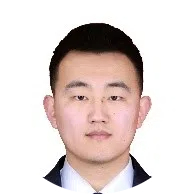Special Session 2 会议特别专题 2
Multi-Channel Radar Signal Processing and Anti-Interference Technology
Description:
Recent advances in multi-channel radar systems, such
as polarimetric radars, MIMO radars, and distributed
aperture radars, have significantly expanded the
capabilities of modern radar applications in
detection, tracking, and recognition. However, the
increasing complexity of electromagnetic
environments and the proliferation of intelligent
jamming techniques present new challenges for signal
processing and interference mitigation.
This special session aims to provide a focused
platform for researchers and practitioners to
present the latest theoretical developments,
algorithms, and practical implementations in
multi-channel radar signal processing and
anti-interference technologies. Topics of interest
include waveform design, adaptive beamforming,
polarization-based processing, spatial diversity
exploitation, and robust anti-jamming strategies,
with an emphasis on innovations that enhance radar
performance under contested and complex
environments.
Session organizers
Assoc. Prof. Xu Cheng, Wuhan Institute of
Technology, China
Assoc. Prof. Pengcheng Gong, Wuhan Institute of Technology, China
Dr. Fulai Wang, National University of Defense
Technology, China
The topics of interest include, but are not limited to:
▪ Multi-channel radar signal modeling and processing
techniques
▪ Polarimetric radar waveform design and
optimization
▪ MIMO radar waveform design and optimization
▪ Anti-jamming signal processing techniques for
radar systems
▪ Adaptive beamforming and interference suppression
▪ Distributed and cooperative radar systems under
interference
▪ Game-theoretic approaches to radar
anti-interference design
▪ Deep learning and machine learning methods for
radar anti-jamming
▪ Robust detection and estimation in hostile
environments
▪ Cognitive radar technologies for dynamic
interference environment
Submission method
Submit your Full Paper (no less than 5 pages with two colums) or
your paper abstract-without publication (200-400
words) via
Online Submission System, then choose Special
Session 2 (Multi-Channel Radar Signal Processing and
Anti-Interference Technology)
Template Download
Introduction of
Session organizers
 Assoc. Prof. Xu Cheng,
Wuhan Institute of Technology, China
Assoc. Prof. Xu Cheng,
Wuhan Institute of Technology, China
Xu Cheng received the B.Sc. degree in communication
engineering, the M.Sc. and the Ph.D. degrees in
information and communication engineering,
respectively, in 2009, 2011 and 2016, from the
National University of Defense Technology, Changsha,
China. From October 2014 to October 2015, he studied
in the University of Naples ``Federico II'', Naples,
Italy. Since July 2020 to July 2022, he was a
postdoctoral researcher at the School of Electronics
and Communication Engineering, Sun Yat-sen
University, Shenzhen, China. He is currently an
associate professor with the Wuhan Institute of
Technology, Wuhan, China. He is currently a senior
member of IEEE and associate editor of the journal
IEEE Sensors Journal. He has published more than 50
papers, including 15 SCI-indexed papers as the
first/corresponding author, co-published a book in
English. His research interests cover multi-channel
radar signal processing, information fusion,
anti-jamming and etc.
 Assoc. Prof. Pengcheng Gong,
Wuhan Institute of Technology, China
Assoc. Prof. Pengcheng Gong,
Wuhan Institute of Technology, China
Pengcheng Gong was born in Gangu, Gansu province,
China. He received the Ph.D. degree in communication
and information system from the University of
Electronic Science and Technology of China, Chengdu,
China, in 2014. From 2014 to 2021, he was with the
School of Electrical and Electronic Engineering,
Hubei University of Technology. Since August 2021,
he has been with the School of Computer Science and
Engineering, Wuhan Institute of Technology, where he
is currently an Associate Professor. His current
research interests include array signal processing,
MIMO radar and mathematical optimization theory.
 Dr. Fulai Wang,
National University of Defense Technology, China
Dr. Fulai Wang,
National University of Defense Technology, China
Fulai Wang received the B.S. degree in communication
engineering and the M.S. and Ph.D. degrees in
information and communication engineering from the
National University of Defense Technology (NUDT),
Changsha, China, in 2016, 2018, and 2022,
respectively. Since 2023, he has been a Lecturer
with the College of Electronic Science, NUDT. His
research interests include radar polarimetry, radar
waveform design, signal processing, and electronic
countermeasure technologies He has published over 20
high-impact papers in journals such as IEEE
Transactions on Geoscience and Remote Sensing,
Transactions on Aerospace and Electronic Systems and
Science China. Dr. Wang received Young Elite
Scientists Sponsorship Program of the China
Association for Science and Technology and Young
Elite of Hunan Province in 2024. He is currently the
young editorial board member of Modern Radar and the
special issue of Journal of Radars.
